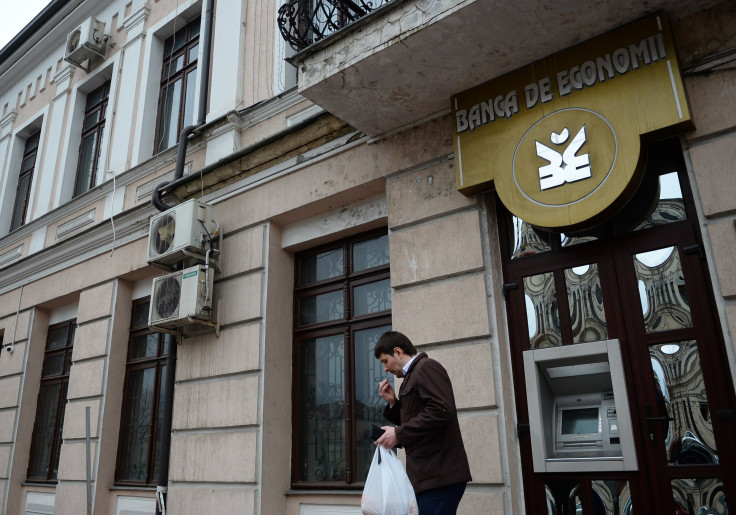Moldova Seeks To Solve Riddle Of Missing $1 Billion

CHISINAU (Reuters) - Moldova will step up an investigation into the disappearance of more than $1 billion from three banks, the head of the central bank told Reuters on Tuesday, after around 10,000 people protested over the scandal at the weekend.
Last year Moldova placed Banca de Economii, Banca Sociala and Unibank under central bank administration after a series of non-performing loans bankrupted the lenders, which together account for up to 20 percent of the tiny former Soviet republic's banking system in terms of assets.
Central bank head Dorin Dragutanu said foreign investigators would be appointed by the end of May in the second phase of a probe into the loss of the money, which is equivalent to around an eighth of Moldova's gross domestic product.
Thousands of people joined a protest rally on Sunday in the Moldovan capital Chisinau and organizers vowed to continue the demonstrations until the money is returned.
Moldova, sandwiched between Romania and Ukraine, is one of Europe's poorest countries. It is trying to reorient its economy towards the European Union after economic turbulence in Russia, its Soviet-era overlord, hit the pace of its own growth.
The central bank commissioned risk consultancy Kroll to conduct a preliminary investigation into the activities of the three stricken banks.
Their findings were confidential but on Monday parliamentary speaker Andrian Candu published what he said was Kroll's report on his website.
"There appears to have been a deliberate plan to gain control of each of the banks and subsequently manipulate transactions to gain access to credit, whilst giving the appearance to the contrary," the report said.
Kroll could not be reached for comment on Tuesday.
The report said the scope of its investigation was too small to trace the identities of all who had gained from the banks' transactions.
Ilan Shor, the president of Banca de Economii since May 2014 and who is among those named in the report, said on Tuesday he was working with investigators to find out who was behind the theft of the missing funds.
"We're actively cooperating with the investigation, we're providing all necessary documents," said Shor, who also owns a chain of duty-free shops.
"We're more interested than anyone in finding out the truth about who stole from the bank starting in the 1990s and right up until 2013," he told reporters.
© Copyright Thomson Reuters 2024. All rights reserved.











